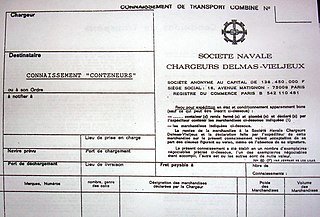Related Research Articles

The economy of Japan is a highly developed free-market economy. It is the third-largest in the world by nominal GDP and the fourth-largest by purchasing power parity (PPP), and is the world's second largest developed economy. Japan is a member of the G7 and G20. According to the International Monetary Fund, the country's per capita GDP (PPP) was at $41,637 (2020). Due to a volatile currency exchange rate, Japan's GDP as measured in dollars fluctuates sharply. Accounting for these fluctuations through the use of the Atlas method, Japan is estimated to have a GDP per capita of around $39,048. The Japanese economy is forecast by the Quarterly Tankan survey of business sentiment conducted by the Bank of Japan. The Nikkei 225 presents the monthly report of top blue chip equities on Japan Exchange Group, which is the world's third-largest stock exchange by market capitalisation. In 2018, Japan was the world's fourth-largest importer and the fourth-largest exporter. It has the world's second-largest foreign-exchange reserves worth $1.3 trillion. It ranks 29th on Ease of doing business index and 5th on Global Competitiveness Report. It ranks first in the world in the Economic Complexity Index. Japan is also the world's third-largest consumer market.

The economy of Nicaragua is focused primarily on the agricultural sector. Nicaragua itself is the least developed country in Central America, and the second poorest in the Americas by nominal GDP. In recent years, under the administrations of Daniel Ortega, the Nicaraguan economy has expanded somewhat, following the global recession of 2009, when the country's economy actually contracted by 1.5%, due to decreased export demand in the US and Central American markets, lower commodity prices for key agricultural exports, and low remittance growth. The economy saw 4.5% growth in 2010 thanks to a recovery in export demand and growth in its tourism industry. Nicaragua's economy continues to post growth, with preliminary indicators showing the Nicaraguan economy growing an additional 5% in 2011. Consumer Price inflation have also curtailed since 2008, when Nicaragua's inflation rate hovered at 19.82%. In 2009 and 2010, the country posted lower inflation rates, 3.68% and 5.45%, respectively. Remittances are a major source of income, equivalent to 15% of the country's GDP, which originate primarily from Costa Rica, the United States, and European Union member states. Approximately one million Nicaraguans contribute to the remittance sector of the economy.
The Incoterms or International Commercial Terms are a series of pre-defined commercial terms published by the International Chamber of Commerce (ICC) relating to international commercial law. They are widely used in international commercial transactions or procurement processes and their use is encouraged by trade councils, courts and international lawyers. A series of three-letter trade terms related to common contractual sales practices, the Incoterms rules are intended primarily to clearly communicate the tasks, costs, and risks associated with the global or international transportation and delivery of goods. Incoterms inform sales contracts defining respective obligations, costs, and risks involved in the delivery of goods from the seller to the buyer, but they do not themselves conclude a contract, determine the price payable, currency or credit terms, govern contract law or define where title to goods transfers.

The arms industry, also known as the arms trade, is a global industry which manufactures and sells weapons and military technology, and is a major component of the military–industrial complex. It consists of a commercial industry involved in the research and development, engineering, production, and servicing of military material, equipment, and facilities. Arms-producing companies, also referred to as arms dealers, or as the military industry, produce arms for the armed forces of states and for civilians. Departments of government also operate in the arms industry, buying and selling weapons, munitions and other military items. An arsenal is a place where arms and ammunition - whether privately or publicly owned - are made, maintained and repaired, stored, or issued, in any combination. Products of the arms industry include guns, artillery, ammunition, missiles, military aircraft, military vehicles, ships, electronic systems, night-vision devices, holographic weapon sights, laser rangefinders, laser sights, hand grenades, landmines and more. The arms industry also provides other logistical and operational support.

Export-oriented industrialization (EOI) sometimes called export substitution industrialization (ESI), export led industrialization (ELI) or export-led growth is a trade and economic policy aiming to speed up the industrialization process of a country by exporting goods for which the nation has a comparative advantage. Export-led growth implies opening domestic markets to foreign competition in exchange for market access in other countries.
A freight rate is a price at which a certain cargo is delivered from one point to another. The price depends on the form of the cargo, the mode of transport, the weight of the cargo, and the distance to the delivery destination. Many shipping services, especially air carriers, use dimensional weight for calculating the price, which takes into account both weight and volume of the cargo.

A freight forwarder, forwarder, or forwarding agent, is a person or company that organizes shipments for individuals or corporations to get goods from the manufacturer or producer to a market, customer or final point of distribution. Forwarders contract with a carrier or often multiple carriers to move the goods.

Coffee is a popular beverage and an important commodity. Tens of millions of small producers in developing countries make their living growing coffee. Over 2.25 billion cups of coffee are consumed in the world daily. Over 90 percent of coffee production takes place in developing countries—mainly South America—while consumption happens primarily in industrialized economies. There are 25 million small producers who rely on coffee for a living worldwide. In Brazil, where almost a third of the world's coffee is produced, over five million people are employed in the cultivation and harvesting of over three billion coffee plants; it is a more labour-intensive culture than alternative cultures of the same regions, such as sugar cane or cattle, as its cultivation is not automated, requiring frequent human attention.
The Journal of Commerce is a biweekly magazine published in the United States that focuses on global trade topics. First published in 1827 in New York, it has a circulation of approximately 15,000. It provides editorial content to manage day-to-day international logistics and shipping need, covering the areas of cargo and freight transportation, export and import, global transport logistics and trade, international supply chain management and US Customs regulations.
JOC Group Inc., is a provider of global intelligence for trade, transportation and logistics professionals. It is founded in 2003 and is headquartered in Newark, New Jersey. Owned by IHS Inc., its brands include The Journal of Commerce, PIERS: The Port Import/Export Reporting Service, and a number of directory databases covering the international trade, railroad, and trucking markets. The JOC Group also stages about 11 conferences and exhibitions serving international trade and maritime markets.

Manufacturing in the United States is a vital sector. The United States is the world's third largest manufacturer with a record high real output in Q1 2018 of $2.00 trillion well above the 2007 peak before the Great Recession of $1.95 trillion. The U.S. manufacturing industry employed 12.35 million people in December 2016 and 12.56 million in December 2017, an increase of 207,000 or 1.7%. Though still a large part of the US economy, in Q1 2018 manufacturing contributed less to GDP than the 'Finance, insurance, real estate, rental, and leasing' sector, the 'Government' sector, or 'Professional and business services' sector.

Foreign trade in India includes all imports and exports to and from India. At the level of Central Government it is administered by the Ministry of Commerce and Industry. Foreign trade accounted for 48.8% of India's GDP in 2018.
Zepol provides subscription access to U.S. trade data tools that contain near real-time statistics on U.S. imports and exports. Zepol provides access to over 150 million bills of lading. This information shows key details on companies that import into and export from the United States and global suppliers overseas. "The information comes from U.S. Customs, other government sources and also is gathered from vessel manifests filed at various ports.
Central Warehousing Corporation is a statutory body which was established under ‘The Warehousing Corporations Act, 1962. Its aim is to provide reliable, cost-effective, value-added, integrated warehousing and logistics solution in a socially responsible and environment friendly manner.It is a public warehouse operator established by the Government of India in 1957 to provide logistics support to the agricultural sector. It operates 422 warehouses across India with a storage capacity of 10 million tonnes. Services include foodgrain warehouses, industrial warehousing, custom bonded warehouses, container freight stations, inland clearance depots and aircargo complexes.

A bill of lading is a document issued by a carrier to acknowledge receipt of cargo for shipment. Although the term historically related only to carriage by sea, a bill of lading may today be used for any type of carriage of goods. Bills of lading are one of three crucial documents used in international trade to ensure that exporters receive payment and importers receive the merchandise. The other two documents are a policy of insurance and an invoice. Whereas a bill of lading is negotiable, both a policy and an invoice are assignable. In international trade outside the United States, bills of lading are distinct from waybills in that the latter are not transferable and do not confer title. Nevertheless, the UK Carriage of Goods by Sea Act 1992 grants "all rights of suit under the contract of carriage" to the lawful holder of a bill of lading, or to the consignee under a sea waybill or a ship's delivery order.
Bloomberg Government is a division of Bloomberg Industry Group that provides data-driven decision tools, news, and analytics in a digital workspace for professionals who influence government action.
Speciality chemicals are particular chemical products which provide a wide variety of effects on which many other industry sectors rely. Some of the categories of speciality chemicals are adhesives, agrichemicals, cleaning materials, colors, cosmetic additives, construction chemicals, elastomers, flavors, food additives, fragrances, industrial gases, lubricants, paints, polymers, surfactants, and textile auxiliaries. Other industrial sectors such as automotive, aerospace, food, cosmetics, agriculture, manufacturing, and textiles are highly dependent on such products.
Datamyne was a privately held corporation that provides access to a searchable database of import-export trade of 50 countries across five continents. The company was acquired by Descartes Systems Group in December 2016. The purchase price for the acquisition was approximately US $52.7 million in cash.
Trade data, or import and export statistics, consist of statistical data about international trade, typically organized by time period, country, and commodity.
References
- ↑ PIERS, "Welcome to Data in Motion!" April 6, 2011
- ↑ Reuters, "PIERS Data Show Recession Slowing U.S. Imports and Exports" January 12, 2009
- ↑ Michigan State University, "Statistical Data Sources" December 10, 2010
- ↑ Research and Innovative Technology Administration, "Overview of US International Trade and Transportation Data" Archived 2011-11-09 at the Wayback Machine
- ↑ The Journal of Commerce Online, "PIERS Adds Visualized Search Solutions to Speed Global Trade" August 25, 2010
- ↑ London Stock Exchange, "UBM Acquires Centradex Assets for up to $644,000" Archived 2011-02-06 at the Wayback Machine May 6, 2010
- ↑ The New York Times, "Long Pause for Japanese Industry Raises Concerns About Supply Chain", March 17, 2011
- ↑ The Wall Street Journal, "Vital Signs," Dec 6, 2010
- ↑ Bloomberg, "Ship Rejected in China on Radiation Heads to Japan" March 29, 2011
- ↑ CNBC, "Two Sides of Recovery: Shipping Up, Housing Down" July 14, 2010